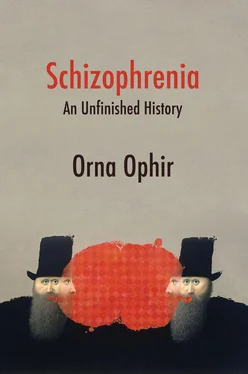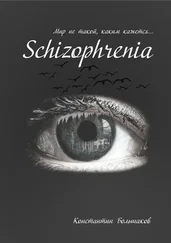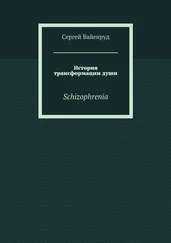36 36. Ibid.
37 37. Ibid., 242.
38 38. Hippocrates, The Sacred Disease, Loeb Classical Library, Vol II, trans. W. H. S. Jones, P. Potter, W. D. Smith and E. T. Withington (Cambridge, MA: Harvard University Press, 1923).
39 39. Ibid., 175
40 40. Thumiger, “Ancient Greek and Roman traditions,” 48.
41 41. Ibid.
42 42. The Sacred Disease, 177.
43 43. Ibid.
44 44. Ibid.
45 45. Celsus, De Medicina, III, 18. See Celsus, On Medicine, Vol. III: Books 7–8, trans. W. G. Spencer. Loeb Classical Library (Cambridge, MA: Harvard University Press, 1938), 336.
46 46. Thumiger, “Ancient Greek and Roman traditions,” 51.
47 47. Ibid., 52.
48 48. Galen, On the Passions and Errors of the Soul, trans. P. Harkins (Columbus, OH: Ohio State University Press, 1963).
49 49. Ibid., 43.
50 50. Ibid., 46–7.
51 51. Ibid., 46. In Plato’s metaphor of the tripartite soul, the charioteer drives a pair of winged horses, one of which is noble and good (the spirited part) while the other is the opposite (the appetitive part).
52 52. Although the origin of the six non-naturals can be traced back to Galen’s “Ars medica,” he does not use the term “non-naturals.” It was in the Islamic world, which received Greek medicine through translation, that the number and the contents of these factors was established as theory.
53 53. Galen, The Capacities of the Soul Depend on the Mixtures of the Body, in Thumiger, “Ancient Greek and Roman traditions,” 54. See Peter Singer, Galen, Psychological Writings (Cambridge: Cambridge University Press, 2013).
54 54. Margery Kempe, The Book of Margery Kempe, trans. John Skinner (New York: Image Books/Doubleday, 1998).
55 55. Claire Trenery and Peregrine Horden, “Madness in the Middle Ages,” in The Routledge History of Madness and Mental Health, 62–80.
56 56. Avicenna, Canon medicinae (latine): a Gerardo Cremonensi translatus (Venice: Bonetus Locatellus, 1490), 257 in Trenery and Horden, “Madness in the Middle Ages,” 66.
57 57. Ibid., 67.
58 58. Ibid.
59 59. Ibid.
60 60. Penelope Doob, Nebuchadnezzar’s Children: Conventions of Madness in Middle English Literature (New Haven, CT: Yale University Press, 1974).
61 61. Sylvia Huot, Madness in Medieval French Literature: Identities Found and Lost (Oxford: Oxford University Press, 2003), 10.
62 62. Barbara Cassin, Emily Apter, Jacques Lezra and Michael Wood, Dictionary of Untranslatables: A Philosophical Lexicon (Princeton, NJ: Princeton University Press, 2014), 615.
63 63. Sander Gilman, Seeing the Insane: A Visual and Cultural History of Our Attitudes Toward the Mentally Ill (Brattleboro, VT: Echo Point Books and Media, 2014), xi.
64 64. Cassin, Dictionary of Untranslatables, 617.
65 65. The Book of Margery Kempe, trans. John Skinner (New York: Image Books/Doubleday, 1998).
66 66. Ibid., 276.
67 67. Ibid., 70.
68 68. Ibid., 248.
69 69. Trenery and Horden, “Madness in the Middle Ages,” 74.
70 70. Ibid. See also Peregrine Horden, “Responses to possession and insanity in the earlier Byzantine world,” Social History of Medicine 6 (1993): 177–94.
71 71. Michael W. Dols, Majnūn: The Madman in Medieval Islamic Society (Oxford: Clarendon Press, 1992), 475.
72 72. Hannah Allen, “A narrative of God’s gracious dealings with that choice Christian,” 1683, in Voices of Madness: Four Pamphlets, 1683–1796, ed. Allan Ingram (Stroud, Glos.: Sutton, 1997).
73 73. Elizabeth Mellyn, “Healers and healing in the early modern health care market,” in The Routledge History of Madness and Mental Health, 83–100.
74 74. Lauren Kassell, Michael Hawkins, Robert Ralley, et al. (eds.), “CASE16959,” in The Casebooks of Simon Forman and Richard Napier, 1596–1634: A Digital Edition, https://casebooks.lib.cam.ac.uk/cases/CASE1659.
75 75. Mellyn, “Healers and healing,” 99.
76 76. Ibid., 91.
77 77. George Mora, “Paracelsus’ psychiatry: On the occasion of the 400th anniversary of his book ‘Diseases that Deprive Man of His Reason’ (1567),” American Journal of Psychiatry 124 (1967): 803–14.
78 78. Mellyn, “Healers and healing,” p. 91.
79 79. Ibid.
80 80. Philippe Pinel, A Treatise on Insanity, trans. D. D. Davis (Sheffield: W. Todd, 1806), 2.
81 81. Ibid.
82 82. German E. Berrios and Ivana S. Marková, “The epistemology and classification of ‘madness’ since the eighteenth century,” in The Routledge History of Madness and Mental Health, 115–34.
83 83. Carl Linnaeus, Genera Morborum [Classification of Diseases] (Upsaliæ, 1759), 1.
84 84. Richard Pulteney, “A general view of the writings of Linnæus,” 178–9. https://quod.lib.umich.edu/e/ecco/004894125.0001.000/1:3.4?rgn=div2;view=fulltext
85 85. William Cullen, Synopsis Nosologiae Methodicae, Vol. 1, 4th edn (Edinburgh: W. Creech, 1785), 182. Quoted in Berrios and Marková, “The epistemology and classification of ‘madness’,” 118.
86 86. Ibid., 118.
87 87. Philippe Pinel, Medico-Philosophical Treatise on Mental Alienation or Mania. Vol. 2, 2nd edn, trans. G. Hickish, D. Healy and L. C. Charland (Chichester: Wiley-Blackwell, 2008), 54.
88 88. Ibid., 62.
89 89. G. E. Berrios, “The nineteenth-century nosology of alienism, history and epistemology,” in Kenneth S. Kendler and Josef Parnas (eds.), Philosophical Issues in Psychiatry II: Nosology (Oxford: Oxford University Press, 2012), 101–23.
90 90. Ibid., 121.
91 91. See Andrew Scull, Madness in Civilization: A Cultural History of Insanity from the Bible to Freud, from the Madhouse to Modern Medicine (Princeton, NJ: Princeton University Press, 2015).
92 92. William Parry-Jones, The Trade in Lunacy: A Study of Private Madhouses in England in the Eighteenth and Nineteenth Centuries (London: Routledge & Kegan Paul, 1972).
93 93. Berrios and Marková, “The epistemology and classification of ‘madness’,” 122.
94 94. Edward Shorter, A History of Psychiatry: From the Era of the Asylum to the Age of Prozac (New York: John Wiley & Sons, 1997).
95 95. Berrios and Marková, “The epistemology and classification of ‘madness’,” 123.
96 96. Andrew Abbott, The System of Professions: An Essay on the Division of Expert Labor (Chicago, IL: University of Chicago Press, 1988).
97 97. Berrios and Marková, “The epistemology and classification of ‘madness,’” 121.
98 98. Ibid.
99 99. Ibid., 124.
100 100. See E. Mendel, Leitfaden der Psychiatrie (Stuttgart: Ferdinand Enke, 1902), 121, quoted in Berrios and Marková, “The epistemology and classification of ‘madness’,” 124.
101 101. P. J. Möbius, Abriss der Lehre von den Nervenkrankheiten (Leipzig: Ambrosius Abel, 1893), 71ff, quoted in Berrios and Marková, “The epistemology and classification of ‘madness’,” 124.
102 102. Berrios and Marková, “The epistemology and classification of ‘madness’,” 125.
103 103. Edward Shorter, “Primary care,” in Roy Porter (ed.), The Cambridge Illustrated History of Medicine (Cambridge: Cambridge University Press, 1996), 118–53.
104 104. See Roy Porter, “What is disease,” in The Cambridge Illustrated History of Medicine, 95.
Конец ознакомительного фрагмента.
Текст предоставлен ООО «ЛитРес».
Прочитайте эту книгу целиком, купив полную легальную версию на ЛитРес.
Безопасно оплатить книгу можно банковской картой Visa, MasterCard, Maestro, со счета мобильного телефона, с платежного терминала, в салоне МТС или Связной, через PayPal, WebMoney, Яндекс.Деньги, QIWI Кошелек, бонусными картами или другим удобным Вам способом.












